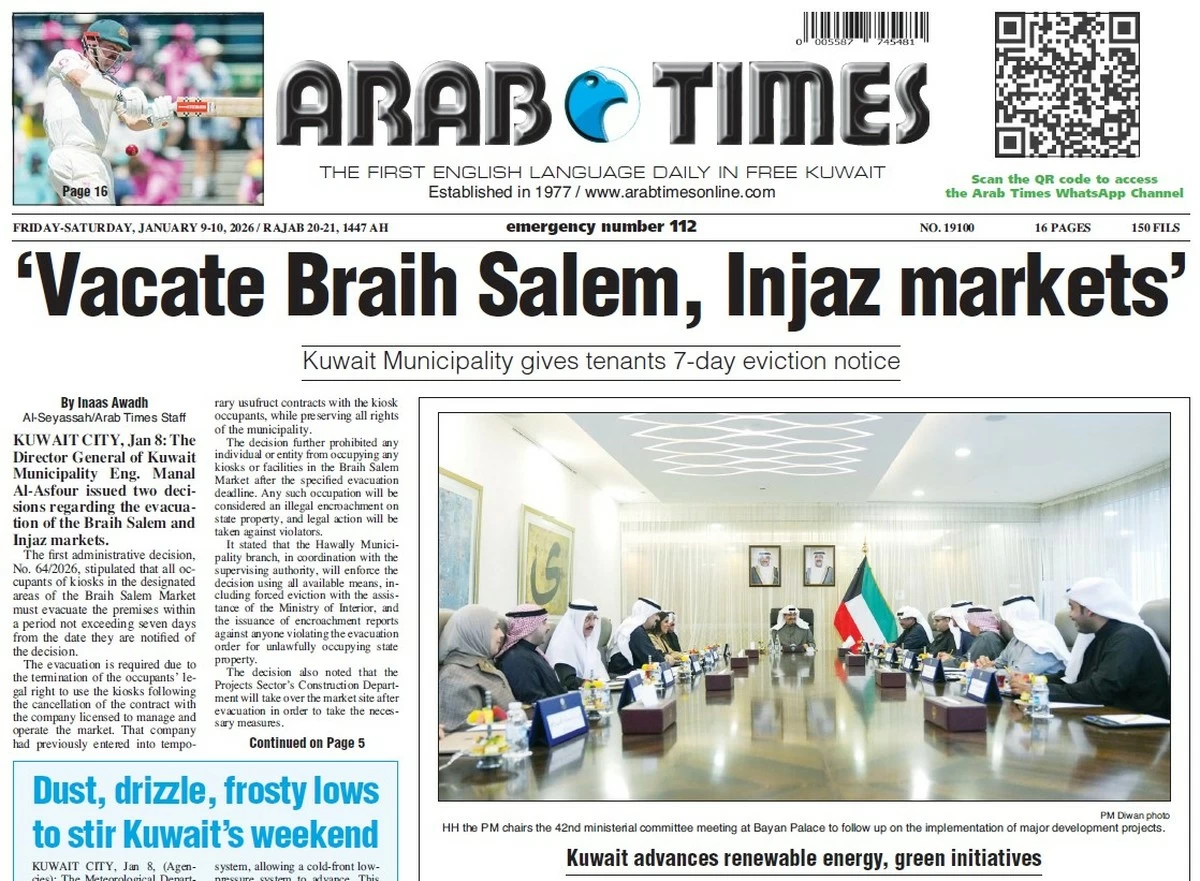27/10/2024
27/10/2024

KUWAIT CITY, Oct 27: Head of the Kuwait Teachers Society (KTS) Hamad Al- Houli announced a series of important recommendations from the 45th Educational Conference, which was held under the esteemed patronage of His Highness the Amir Sheikh Mishal Al-Ahmad Al-Jaber Al-Sabah. The conference aims to reform the educational system in light of challenges such as leadership instability and the backlog of pending files that hinder educational progress.
At a press conference held at the society’s headquarters, Al-Houli explained that the 45th Educational Conference took place under the esteemed patronage of His Highness the Amir Sheikh Mishal Al-Ahmad Al-Jaber Al-Sabah. This recognition reflects the pressing need to address the educational reality, which is experiencing significant developments amid leadership instability, a heavy legacy, and a large number of pending issues that obstruct educational reform.
The conference primarily focused on developing the educational system in Kuwait through a number of projects aimed at ensuring governance and improving quality of the educational system. It also shed light on several educational initiatives designed to reform the educational system and outline its future direction.
Al-Houli announced that these initiatives have resulted in a comprehensive list of recommendations, which include:
1. Issuing a decree for the Supreme Council for Education in line with New Kuwait 2035 vision, along with approving its rules and organizational structure, and appointing the National Authority for Quality and Educational Excellence, headed by the Prime Minister.
2. Expediting the completion of the functional structure project for the Ministry of Education.
3. Drafting national strategies for training, education, and scientific research, as well as general policies.
4. Establishing a national curriculum standards framework.
5. Creating the National Center for Education Worker and Leader Training and Qualification.
6. Launching educational professional licenses, the teacher license project, and associated incentive programs.
7. Implementing academic accreditation for educational institutions.
8. Enhancing the quality, fairness, and independence of national exams, including university admissions tests.
9. Categorizing educational institutions and establishing a corresponding reward structure.
10. Integrating individuals with disabilities into the educational system.
11. Developing a digital education environment to improve the learning experience using cutting-edge digital and technological systems.
12. Activating community partnerships between civil society organizations and educational institutions
Al-Houli highlighted several special recommendations (axes) from the conference that outline a roadmap for decision-makers to develop the educational process in line with the desired aspirations to improve Kuwait’s educational reality.
First Axis - Developing educational policies:
1. The policies of the Supreme Education Council will cover education curricula, teacher qualifications, evaluation and assessment, student discipline, school safety and security, the use of technology, digital education, and artificial intelligence in classrooms.
2. Emphasis will be placed on special education, inclusive education, and secondary education tracks, and ensuring justice and diversity in education, and language and cultural proficiency.
3. Policies will provide alternatives for the learning environment, with the goal of maintaining consistency in decision-making and procedures.
4. There is a pressing need to expedite the process of securing leadership stability within the Ministry of Education and filling leadership and supervisory positions.
5. There will be focus on supporting scientific research, particularly experimental studies, to inform educational policy development.
6. Teachers will be empowered to participate in shaping educational policies and ensure their visions are taken into consideration.
7. Efforts will be directed towards enabling educational leaders to effectively exercise leadership roles and encourage innovation through the National Center for Rehabilitation of Personnel.
By Abdulrahman Al-Shammari
Al-Seyassah/Arab Times Staff


